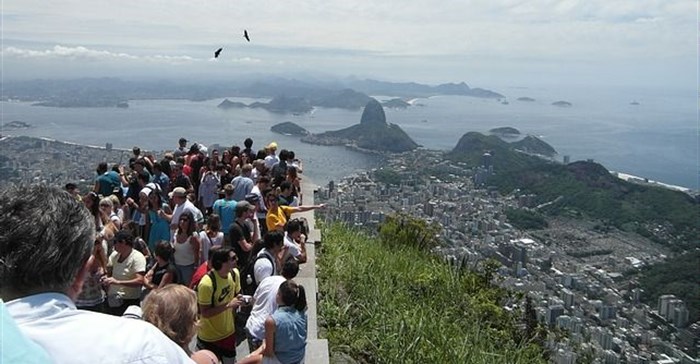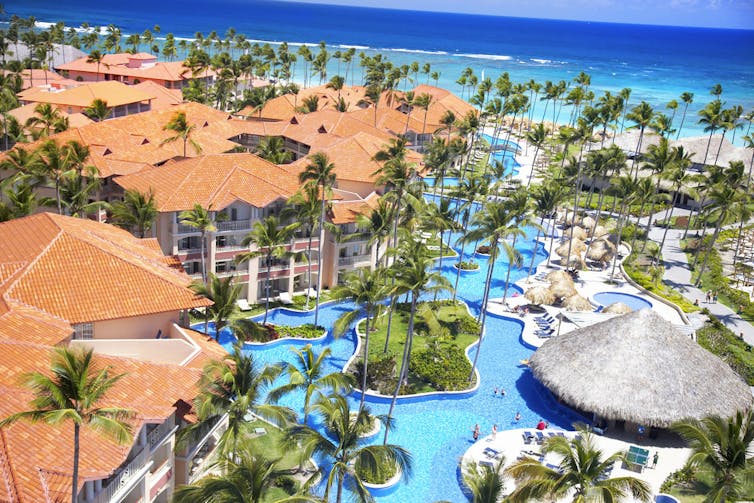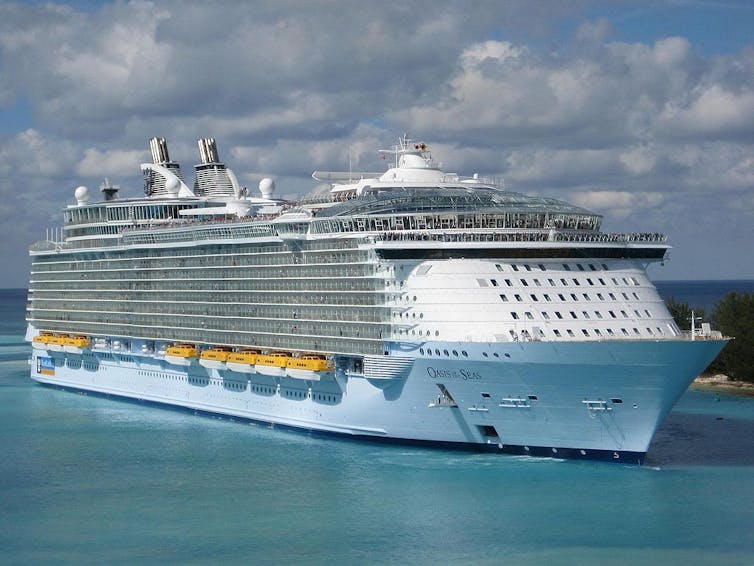
Related
Top stories

HR & ManagementNike under investigation for allegedly discriminating against White employees
6 Feb 2026



I have studied tourism’s social and environmental consequences along the coastlines of Colombia, Costa Rica and Nicaragua, in the rainforests of Peru and Ecuador, on the islands of Fiji and the Galapagos and across the savannahs of South Africa and Tanzania. My research and that of numerous other scholars spotlights a key fact: More tourism is not always better. Increasing the number of visitors has generated profits for travel companies – particularly the cruise ship industry – but it has not always benefited local communities and environments where tourism occurs.
Fortunately, once people are aware of the often surprising ways in which their trips impact local people and places, it becomes easy to ensure that their travel has more positive consequences for the destinations they visit.

A demonstrator holds a Basque-language banner that reads ‘Tourism = a poverty salary’ during a protest against massive tourism in San Sebastian, Spain, on Aug. 17, 2017.
AP Photo/Alvaro Barrientos
Born from the accessibility of mass air travel, modern international tourism has been popularized as “holiday-making” in regions that offer comparative advantages of sand, sun and sea. Travel is often portrayed as a tool for personal growth and tourism as an economic motor for destination countries and cities. There is a tendency to assume that tourism is good for everyone involved.
Today the big bang of tourism drives more than 1.2 billion tourists across international borders each year, generates 9% of global GDP and provides one out of every 11 jobs on earth. But many popular places are literally being loved to death. Recent protests in ports of call like Venice and Barcelona against disturbances created by larger and more numerous cruise ships show the unfortunate consequences of emphasizing quantity over quality in tourism.
Unabated tourism development has become a primary driver of social and environmental disruption. Tourism studies, which came of age as a scholarly field in the 1970s, provides much documentation of the many negative social impacts of tourism and resulting resentment that local populations direct towards visitors.
Early tourism scholars even developed an “irridex” to measure this irritation with tourists among local residents. Later, scholars identified stages through which tourist destinations evolve. Antagonism toward tourists typically develops in mature, heavily visited destinations. Protests in heavily visited destinations suggest that traditional tourism has overstayed its welcome.
Resentment toward tourists, attacks on foreign-owned hotels and increases in crime against both tourists and local residents were regularly documented in the 1970s and ‘80s, at a time when only 2 to 3 million tourists were crossing international borders annually. So it is not surprising that such protests have escalated in scale and frequency as tourism has grown.
In Barcelona, for example, growing resentment of neighbourhood gentrification, elevated real estate and rental prices, and erosion of local social networks has led some residents to call tourism the city’s biggest problem and label tourists as “terrorists.”
Residents often become frustrated when the benefits of tourism are not felt locally. Although it can generate foreign exchange, income and employment, there is no guarantee that multinational hotel chains will allocate these benefits equitably among local communities.
On the contrary, when people stay at large resorts or on cruise ships, they make most of their purchases there, leaving local communities little opportunity to benefit from tourist spending. These forms of tourism widen economic and political gaps between haves and have-nots at local destinations.
In recent decades, local residents in destination communities also have found themselves negotiating new cultural boundaries, class dynamics, service industry roles and lifestyle transformations. For example, data show that tourism activity corresponds to increased alcohol, drug and sex abuse as local residents adopt the behaviors of tourists, often leading to parallel upticks in crime, addiction and prostitution.
All-inclusive resorts can also privatize access to important coastal, marine, forest and agricultural resources. And when foreign investment drives up local land values and living costs to international standards, it may put ownership out of reach for local residents. In such situations, even people who depend on tourism will often question its ethics, whether they are rural Nicaraguan residents working in a newly booming resort industry or urban dwellers being priced out of their apartments by the sharing economy.

All-inclusive resorts (shown: Hotel Majestic Colonial Punta Cana, Dominican Republic) offer amenities such as shopping, child care, religious services and multiple bars and restaurants, reducing incentives to spend time outside the gates.
Batle Group, CC BY-SA
Jim Damalas, owner of Si Como No ecolodge in Costa Rica, observes that publicly traded corporations do “not fall in love with the country, they fall in love with the numbers.” No form of tourism is more in love with the numbers than cruises. While all forms of tourism have grown in recent decades, the rise in cruise travel is dramatic. For instance, cruise visitors to Belize grew from 34,000 in 1999 to 800,000 in 2005.
Contemporary cruise ships can entertain as many as 5,700 passengers. These boats themselves are the destinations. As they bounce from port to port, they are not beholden to any particular community and provide only the most superficial levels of engagement with local people and places. Their business model emphasizes packing the greatest number of travellers into the greatest number of places in the shortest amount of time.
Research into the industry’s impact has shown that few forms of tourism do less to improve the social, environmental or economic well-being of the places where they occur than cruises. These trips may give passengers a pleasurable experience, but they miss the boat – pun intended – with regard to supporting local communities and environments.

Royal Caribbean’s Oasis-class cruise ships can carry more then 5,400 passengers and displace roughly as much water as a Nimitz-class aircraft carrier.
Baldwin040, CC BY-SA
The United Nations declared 2017 the International Year of Sustainable Tourism for Development. What does this mean for the everyday traveller? Here are a few of the UN’s suggestions, which research on tourism supports.
First, as Stephen Colbert has quipped, “There’s nothing American tourists like more than the things they can get at home.” All tourists should make every effort to honour their hosts and respect local conditions. This means being prepared to adapt to local customs and norms, rather than expecting local conditions to adapt to travellers.
Second, tourism is a market-based activity and works best when consumers reward better performers. Livelihoods, human rights and the fate of endangered species all can be affected by travellers’ decisions. In the information age, there is little excuse for travellers being uninformed about where their vacation money goes and who it enriches.
Informed travellers also are better able to distinguish between multinational companies and local entrepreneurs whose businesses provide direct social, environmental, and economic benefits for local residents. Such businesses are in love with the destination, not just the numbers, and are therefore deserving of market reward.
![]() In the long run, the goal should not be just to minimize the impact of travel. Being a responsible traveller means ensuring net positive impacts for local people and environments. With the amount of information available at our fingertips, there has never been more opportunity to do so.
In the long run, the goal should not be just to minimize the impact of travel. Being a responsible traveller means ensuring net positive impacts for local people and environments. With the amount of information available at our fingertips, there has never been more opportunity to do so.
This article was originally published on The Conversation. Read the original article.

The Conversation Africa is an independent source of news and views from the academic and research community. Its aim is to promote better understanding of current affairs and complex issues, and allow for a better quality of public discourse and conversation.
Go to: https://theconversation.com/africa